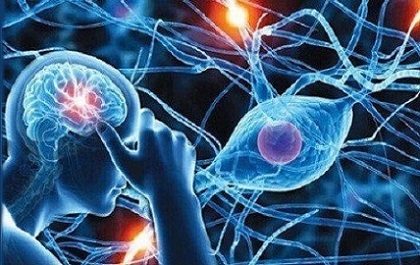How Zinc and Carnosine Could Hold the Key to Fighting Dementia and Parkinson’s Disease
Nikhil Prasad Fact checked by:Thailand Medical News Team Jun 15, 2024 1 year, 7 months, 4 weeks, 1 day, 13 hours, 15 minutes ago
Medical News: Understanding Zinc's Role in Brain Health
Zinc is an essential mineral that supports numerous bodily functions, including the immune system and brain activity. However, recent research has highlighted zinc's darker side: its potential contribution to serious neurological diseases like vascular dementia (VD) and Parkinson's disease (PD). While zinc is vital in small amounts, an imbalance can lead to significant brain damage. This
Medical News report explores the dual role of zinc in the brain and introduces carnosine, a promising compound that might protect against zinc's harmful effects.
 How Zinc and Carnosine Could Hold the Key to Fighting Dementia and Parkinson’s Disease
The Double-Edged Sword: Zinc in Neurological Diseases
How Zinc and Carnosine Could Hold the Key to Fighting Dementia and Parkinson’s Disease
The Double-Edged Sword: Zinc in Neurological Diseases
Zinc plays a crucial role in brain function by supporting cell division, the immune system, and protein synthesis. However, too much zinc can be toxic to brain cells, leading to conditions like vascular dementia (VD) and Parkinson's disease (PD). These diseases are characterized by memory loss, motor deficits, and other severe symptoms. In VD, a form of dementia resulting from stroke or blood flow problems in the brain, excessive zinc contributes to brain cell death and cognitive decline. Similarly, in PD, zinc toxicity is linked to the death of dopamine-producing neurons, causing the characteristic tremors and muscle rigidity.
Zinc's Path to Destruction
When the brain experiences stress, such as during a stroke, zinc is released from neurons. This excess zinc disrupts the balance of calcium in brain cells, leading to cell death. Researchers have found that zinc can trigger oxidative stress and inflammation, further damaging neurons. This process is exacerbated by other metals like copper, which amplify zinc's toxic effects. Understanding these mechanisms is essential for developing treatments to prevent or mitigate the damage caused by zinc.
Carnosine: A Natural Defender
Carnosine, a dipeptide composed of beta-alanine and histidine, has shown promise in protecting brain cells from zinc-induced damage. Found naturally in muscles and the brain, carnosine has antioxidant, anti-inflammatory, and metal-chelating properties. It helps regulate zinc levels and prevents the harmful effects of excessive zinc. Studies have demonstrated that carnosine can reduce zinc-induced oxidative stress and inflammation, making it a potential therapeutic agent for vascular dementia (VD) and Parkinson's disease (PD).
How Carnosine Works
Carnosine works by several mechanisms to protect brain cells. It binds to zinc, reducing its availability to participate in harmful reactions. Carnosine also scavenges reactive oxygen species (ROS), which are harmful byproducts of cellular metabolism that can damage cells. Additionally, carnosine inhibits the activation of stress pathways in the brain, which are triggered by excessive zinc. These combined actions help to preserve neuronal health and function.
Research Highlights: Promi
sing Findings
Recent studies using animal models and cell cultures have provided strong evidence of carnosine's protective effects. For example, researchers found that carnosine could prevent cell death in neurons exposed to high levels of zinc. Another study showed that carnosine supplementation improved cognitive function and reduced brain damage in mice subjected to stroke-like conditions. These findings suggest that carnosine could be a valuable addition to current treatment strategies for neurological diseases.
Future Directions: Carnosine as a Supplement
Given its natural occurrence and beneficial properties, carnosine has the potential to be developed into a dietary supplement for brain health. Researchers are exploring ways to enhance its stability and absorption in the body to maximize its protective effects. There is also ongoing research into the optimal dosage and formulation of carnosine supplements to ensure safety and efficacy.
Conclusion: A Hopeful Outlook
The discovery of carnosine's protective effects against zinc-induced brain damage opens up new avenues for treating and preventing vascular dementia (VD) and Parkinson's disease (PD). While more research is needed to fully understand its mechanisms and potential applications, carnosine represents a promising step forward in the fight against these debilitating diseases. By harnessing the power of natural compounds like carnosine, we can hope to improve the quality of life for millions affected by neurological disorders.
The study findings were published in the peer reviewed journal: Biomedicines.
https://www.mdpi.com/2227-9059/12/6/1296
For the latest about Vascular Dementia or Parkinsons, keep on logging to Thailand
Medical News.
Read Also:
https://www.thailandmedical.news/news/herbs-and-phytochemicals-leaves-of-acorus-tatarinowii-and-acorus-gramineus-can-be-used-to-prevent-dementia
https://www.thailandmedical.news/news/consuming-olive-oil-daily-reduces-risk-of-developing-dementia-and-dying-from-dementia
